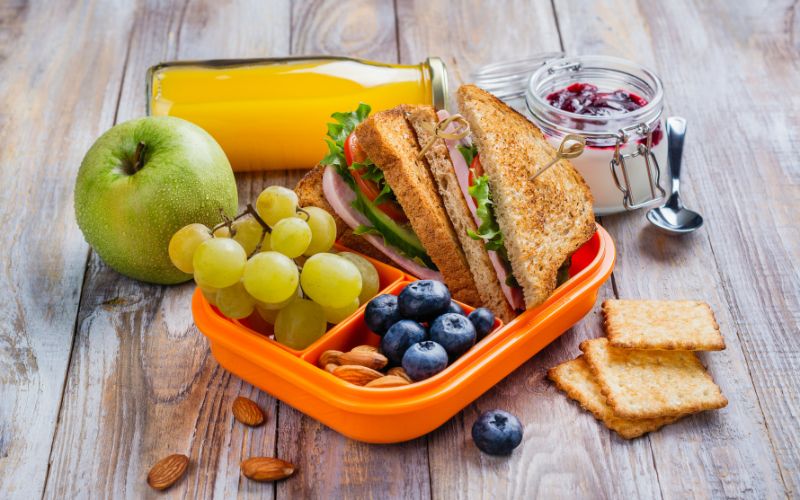
- Details
- By Cherokee Nation Principal Chief Chuck Hoskin Jr.
Guest Opinion. In the modern world, no child should ever need to worry about having enough nutritious food. When families cannot provide that by themselves, it is a core responsibility of good government to fill the gap.
This is why, when the U.S. Department of Agriculture asked for help distributing food benefits during summer months, Cherokee Nation was quick to volunteer. We joined three other tribal nations, 35 states and five U.S. territories to offer this program nationwide.
The Summer Electronic Benefit Transfer for Children program, or Summer EBT, will provide $40 per month for each child in families that qualify for free or reduced-price lunches. So each child – Native or non-Native – that qualifies and goes to a school that participates in the National School Lunch Program could receive $120 over the duration of the summer. This food aid is especially important during the summer break when kids aren’t getting meals at school. The money is loaded on an EBT card that families can use in grocery stores.
Families have been under enough pressure from rising costs of housing and other expenses on limited household budgets. According to the latest data from the U.S. Census Bureau, nearly 1 in 5 Oklahoma families with children were uncertain about being able to afford enough food at some point in the year. In this situation, empowering parents to purchase more healthy food should be uncontroversial.
Supporting food security supports good health. A 2022 study by the Center on Budget and Policy Priorities, a nonpartisan think tank, noted that access to Supplemental Nutrition Assistance Benefits, another food security program, leads to lower health care costs and better health outcomes for participants. Although the causes of childhood obesity are complicated, a growing body of research suggests a strong link between food insecurity and obesity, as noted in a 2022 article from the American Academy of Pediatrics.
Science and research aside, anyone who spends any time visiting with low-income families knows this: keeping growing kids fed in the summer at a time when school is out and grocery prices are high is very difficult.
Unfortunately, the state of Oklahoma chose not to participate in Summer EBT this year. However, Cherokee Nation’s program will be available to all families with kids attending schools on our 14-county reservation in northeast Oklahoma, whether or not they are Native Americans. Likewise, the Chickasaw Nation program will be available to all families within their reservation or the Choctaw Nation reservation.
Thanks to the tribes participating in Summer EBT, at least $50 million of our federal tax dollars will be returned to Oklahoma families. Cherokee Nation is covering part of the rather modest administrative costs, but the benefits will come back to families on our reservation many times over. In fact, last year Cherokee Nation’s investment of around $250,000 in administrative cost share yielded $3.5 million in direct federal cash assistance to kids in need. The Cherokee Nation knows a good investment when we see it, and we see it in the summer EBT program.
We are also actively discussing with neighboring tribes on how we can support one another in offering this program and potentially expanding it to additional tribal areas. The state of Oklahoma may be satisfied with inexplicably turning down food assistance for low-income families. The tribes within the state are not.
In addition to the Summer EBT program, Cherokee Nation has long been focused on helping our citizens get healthy foods – from the WIC program, which operates year-round supporting pregnant mothers and families with young children, to our food distribution sites offering a consumer-friendly, grocery store caliber experience, and our emergency efforts to safely distribute hundreds of thousands of food boxes during the worst of the COVID pandemic. Student EBT cards can be used at any store that accepts Cherokee Nation WIC benefits.
We are also taking on efforts to support both consumers and local food producers, such as the 1839 Cherokee Meat Co. that provides meat-processing services and affordable protein options to Cherokee families, including those using SNAP benefits. Additionally, Cherokee Nation is navigating details with USDA on how to potentially serve more students outside the 14-county reservation.
Cherokee Nation is working toward the day when no child ever has to wonder where their next meal is coming from, and no parent ever has to worry that they can’t provide healthy nutrition for their kids. The investments we make today in food security will pay off in stronger families, more thriving communities, and a healthier rising generation of kids.
Help us defend tribal sovereignty.
At Native News Online, our mission is rooted in telling the stories that strengthen sovereignty and uplift Indigenous voices — not just at year’s end, but every single day.
Because of your generosity last year, we were able to keep our reporters on the ground in tribal communities, at national gatherings and in the halls of Congress — covering the issues that matter most to Indian Country: sovereignty, culture, education, health and economic opportunity.
That support sustained us through a tough year in 2025. Now, as we look to the year ahead, we need your help right now to ensure warrior journalism remains strong — reporting that defends tribal sovereignty, amplifies Native truth, and holds power accountable.
 The stakes couldn't be higher. Your support keeps Native voices heard, Native stories told and Native sovereignty defended.
The stakes couldn't be higher. Your support keeps Native voices heard, Native stories told and Native sovereignty defended.
Stand with Warrior Journalism today.
Levi Rickert (Potawatomi), Editor & Publisher

